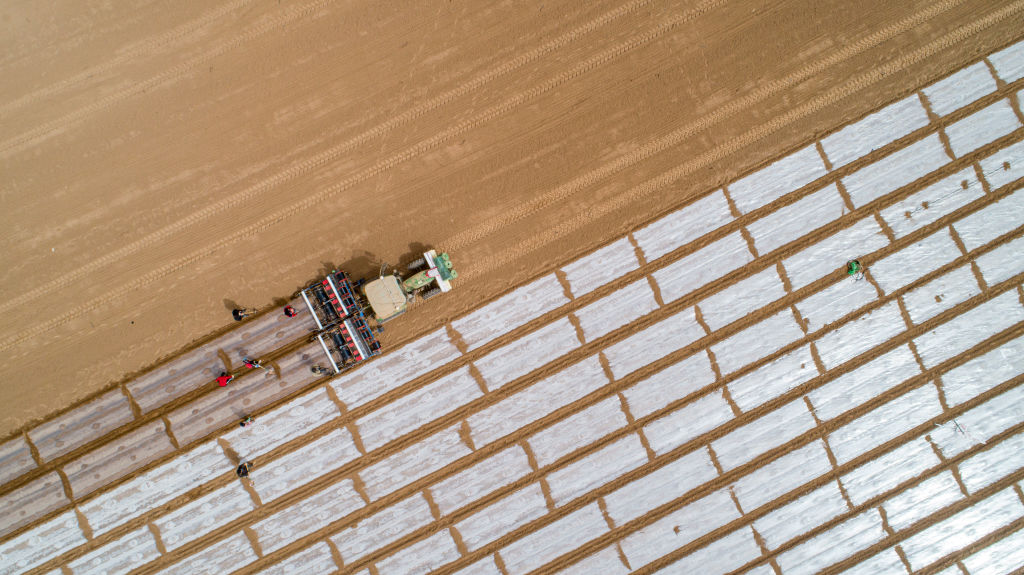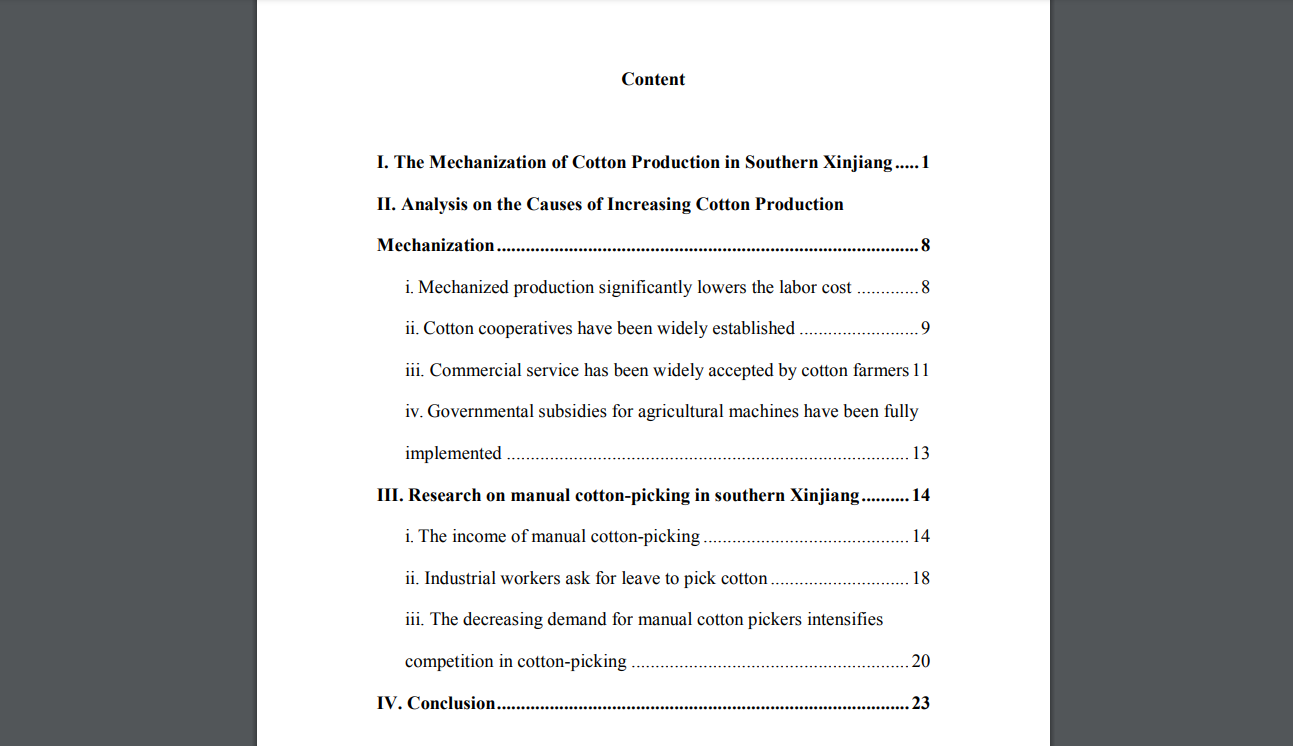
Aerial photo shows a machine sowing cotton in a field of 100 mu (66,667 square meters) in Aksu, Xinjiang Uygur Autonomous Region, northwest China, March 26, 2021. /Getty
Aerial photo shows a machine sowing cotton in a field of 100 mu (66,667 square meters) in Aksu, Xinjiang Uygur Autonomous Region, northwest China, March 26, 2021. /Getty
Editor's note: Xu Jianying is an advanced researcher of China's Borderlands Research Institute, Chinese Academy of Social Sciences. The article reflects the author's opinions and not necessarily the views of CGTN.
The U.S. has been stigmatizing China's cotton production in Xinjiang Uygur Autonomous Region with accusations of so-called "forced labor" since earlier this year. In order to clarify the truth of cotton production in Xinjiang, "Tainting Xinjiang Cotton cannot be Tolerated: The Research Report on Whether There Exists 'forced labor' in Cotton Production in Xinjiang," jointly written by the Institute of Human Rights and the Institute of Non-traditional Security of Southwest University of Political Science and Law, was published on June 15.
There are four parts in the report, including "The Mechanization of Cotton Production in Southern Xinjiang," "Analysis on the Causes of Increasing Cotton Production Mechanization," "Research on Manual Cotton-Picking in Southern Xinjiang" and "Conclusion." It objectively introduces the cotton production and employment in Xinjiang, China, and refutes the lies of the United States.
First of all, the report was written on the basis of research. The report writers went deep into Aksu and Kashgar, the key cotton planting areas in Xinjiang, and conducted extensive and in-depth field research on cotton growers and cotton pickers.
Secondly, the report is focused and targeted. Mechanized production and manual picking of cotton in Xinjiang are the focus of research. The report shows that due to the sharp reduction of the purchase cost of agricultural tools in Xinjiang, cotton production gradually realizes whole-process mechanization. In line with this, the demand for traditional, highly seasonal cotton pickers is gradually decreasing. On the one hand, cotton pickers are becoming more and more scarce and in demand. On the other hand, cotton pickers are actively docking with large cotton growers to seek job opportunities. This change reflects the new trend of cotton production in Xinjiang.

The content of the report. /Screenshot via hri.swupl.edu.cn
The content of the report. /Screenshot via hri.swupl.edu.cn
Thirdly, the report data is reliable and the analysis is comprehensive. The report has carried out a detailed investigation on the working mode, salary mode, settlement mode and actual income status of traditional cotton pickers. It is believed that most full-time cotton pickers can earn more than 10,000 yuan ($1,560) in a cotton picking season, while part-time cotton pickers also earn thousands of yuan, which is an important source of income for local farmers. All ethnic groups of cotton pickers in Xinjiang enjoy extensive and full labor rights. Whether to participate in cotton picking, when, where and how to participate in cotton picking are all decided by cotton pickers.
The report also shows that full-time cotton pickers can arrange their working hours freely according to the actual situation. Part-time cotton pickers can freely participate in cotton picking after finishing their own family work. In order to obtain a high income, some local industrial workers would rather give up the full attendance bonus of the factory than ask for leave to participate in cotton picking during the cotton picking season.
In short, the report fully illustrates with detailed facts that there is a serious lack of factual basis for the West to accuse Xinjiang cotton production of using so-called "forced labor," and there is no "forced labor" in any stage of Xinjiang's cotton production process. With the rapid popularization of mechanized picking, higher income cotton picking is an attractive job in southern Xinjiang. Western countries' malicious interpretation of Xinjiang cotton production not only reflects their lack of basic understanding of China's Xinjiang, but also shows their sinister intention of smearing Xinjiang cotton.
(If you want to contribute and have specific expertise, please contact us at opinions@cgtn.com.)

